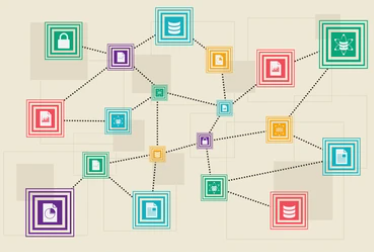In today's digital landscape, data security poses significant challenges for both enterprises and individuals. With frequent occurrences of cyberattacks, data breaches, and privacy concerns, traditional security measures are often insufficient. The integration of residential proxies and blockchain technology is emerging as an innovative solution for data security. This article explores how this combination can ensure future data protection.
Current Data Security Challenges
As data volumes increase, security challenges intensify. Businesses and individuals face various threats, including DDoS attacks, phishing, and malware. Cybercriminals often steal sensitive information, leading to severe breaches and substantial financial losses. Growing concerns over user privacy highlight the risks of improper data collection and usage, compounded by stringent regulations like GDPR, which increase compliance costs.
Characteristics of Blockchain Technology
Blockchain is a decentralized distributed ledger technology that ensures data integrity and authenticity through immutable records. Its transparency allows all participants to view data, fostering trust. By eliminating reliance on centralized authorities, blockchain reduces the risk of single points of failure. Additionally, smart contracts automate the execution and verification of contract terms, enhancing transaction efficiency and security.

Potential of Integrating Residential Proxies and Blockchain
Combining residential proxies with blockchain can establish a more secure and efficient data protection mechanism:
- Enhanced Data Privacy:
Using residential proxies like Omegaproxy allows for encrypted, decentralized data storage via blockchain, ensuring privacy during transmission and storage. This integration effectively prevents data tampering or breaches. - Real-Time Monitoring and Auditing:
Blockchain's transparency enables businesses to monitor and audit data access and operations in real time. Each data access or modification leaves an immutable record on the blockchain, facilitating tracking and review. - Smart Contract Applications:
Smart contracts can automate agreements between residential proxies and data providers, managing data access based on predefined conditions to enhance security. - Prevention of Data Tampering:
The immutable nature of blockchain guarantees data authenticity. When data is scraped through residential proxies, its hash can be recorded on the blockchain, allowing detection of any alterations. - Decentralized Data Storage:
This combination enables decentralized data storage, mitigating risks associated with centralized servers, such as single points of failure and data leaks.
Practical Application Cases
- Financial Sector:
In finance, the combination can secure sensitive data storage and transmission. Residential proxies ensure anonymity while blockchain ensures data integrity and immutability, providing robust security for transactions. - Healthcare:
Handling sensitive patient data can be optimized through data collection via residential proxies, with storage on blockchain ensuring data safety and authenticity, ultimately improving service quality. - Supply Chain Management:
Residential proxies can monitor supply chain data, while blockchain records every transaction, enhancing transparency and reducing fraud risks.

Implementation Strategies and Challenges
Despite the promising integration of residential proxies and blockchain for data security, several challenges must be addressed:
- Technical Integration:
Seamlessly combining these technologies is crucial. Businesses need to invest in technical resources to ensure compatibility. - User Education:
Educating users on the benefits and uses of these technologies is essential to increase acceptance and trust. - Regulatory Compliance:
Companies must adhere to relevant laws and regulations, ensuring that data handling aligns with GDPR and other data protection requirements. - Performance and Efficiency:
While blockchain offers high security, its performance and efficiency must be monitored. Finding a balance between security and efficiency is key.
Conclusion
The integration of residential proxies and blockchain technology offers an innovative approach to future data security. By enhancing data privacy, enabling real-time monitoring, facilitating smart contract applications, and preventing data tampering, businesses can significantly improve data security and mitigate risks. However, challenges such as technical integration, user education, and regulatory compliance must be addressed to unlock the full potential of this combination.





